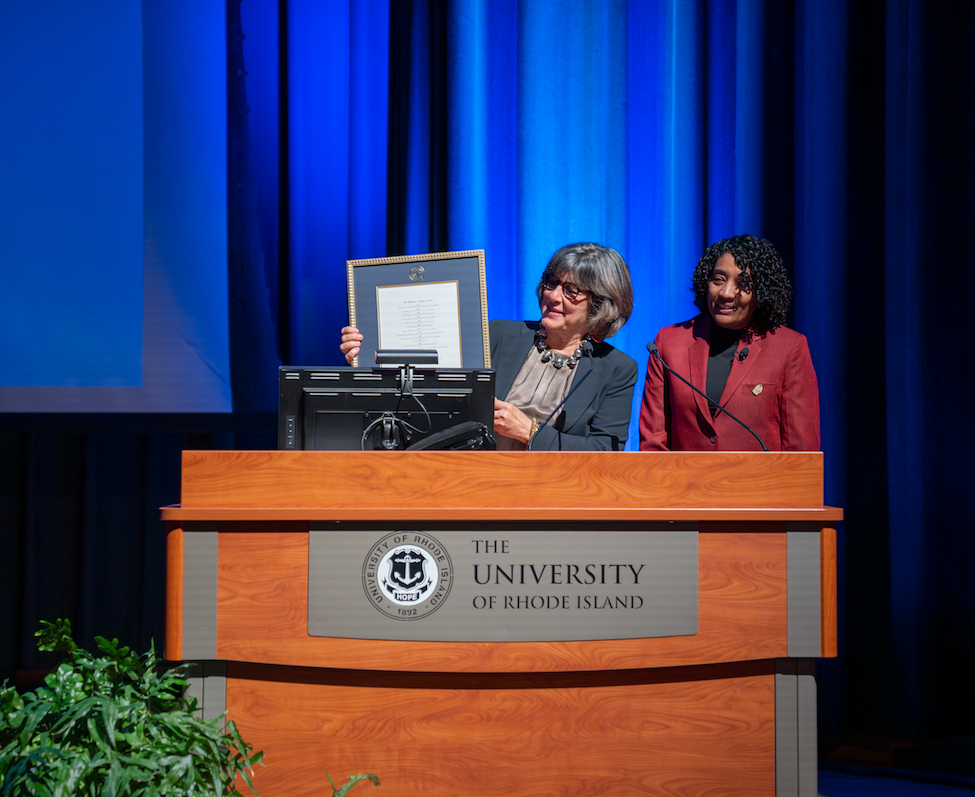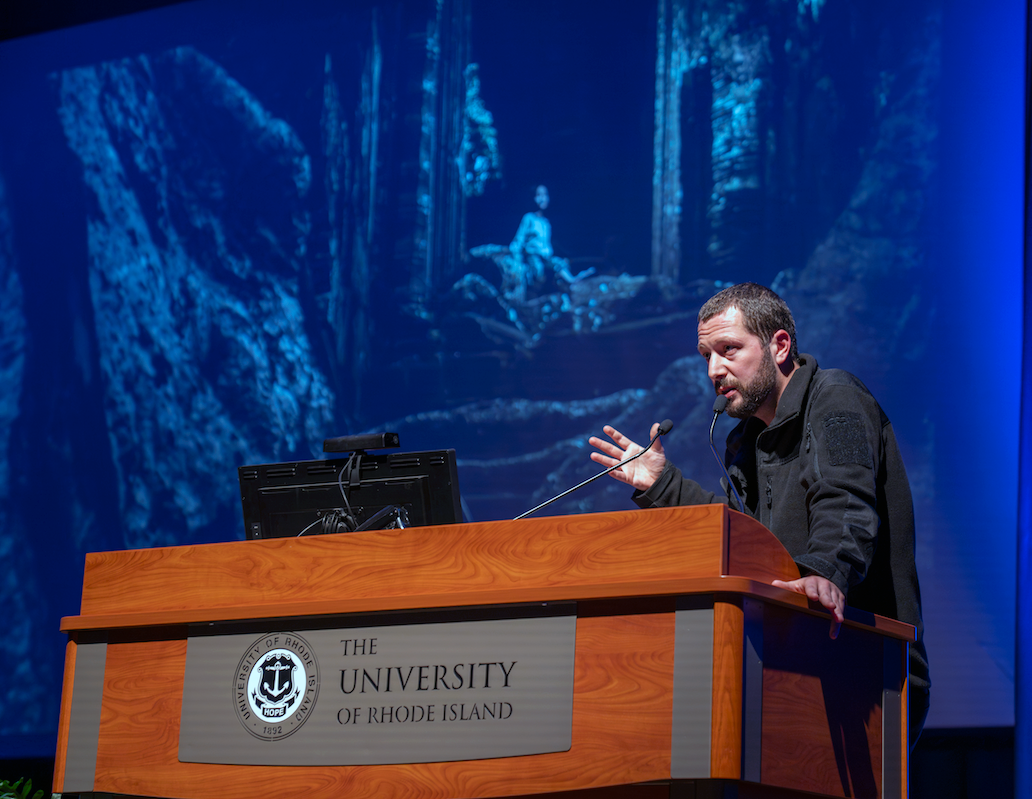KINGSTON, R.I. —Oct. 24, 2023—When Russian forces surrounded the city of Mariupol in southern Ukraine in February 2022, photojournalist and filmmaker Mstyslav Chernov says he learned a powerful lesson about the importance of information in the modern world.
“Mariupol was in an information siege … not just a military siege,” Chernov said. “People [inside the city] didn’t know if Ukraine still existed [as a country]. They didn’t know what had happened to cities nearby.” Even though food and water had not run out and bombs were not falling on the main part of the city (those things would all come later), the information vacuum in Mariupol was already taking a huge toll.
“Society collapsed completely,” Chernov said. “People started looting; they were fighting with each other. They were running after me when I tried to film this.

“That showed me,” he continued, “that information and journalism [are] sometimes more vital for our modern society that is dependent upon information than food and water. It is something that holds us all together. And in times when journalism is largely disregarded … it’s important to understand actually how important [information] is.”
Chernov was the featured speaker for the 16th Amanpour Lecture, an annual lecture sponsored by the University of Rhode Island’s Harrington School of Communication and Media and endowed by Christiane Amanpour, CNN’s chief international anchor and a URI alumna. Chernov’s lecture on Friday, Oct. 20, came the day after he officially received a Pulitzer Prize for his reporting from Mariupol. The footage that Chernov and his colleagues collected became the basis for the Academy Award nominated documentary 20 Days in Mariupol.
Chernov told the audience in Edwards Hall that he had not originally set out to be a conflict journalist. In fact, he hadn’t originally intended to be a journalist at all. In college he had studied computer science and only got into documentary photography and filmmaking by accident. It all started when Chernov was working as a technician installing a local communications network at a hospital.
“One day a doctor runs in the room and says, ‘Hey, technician! Can you use the camera?’” Chernov recalled. “I was like, ‘yeah, sure.’” They ran to an operating room, where surgeons had just performed a new type of transplantation surgery. The doctors asked Chernov to photograph the patient and the work they had done.
“That was the moment I knew I wanted to be a photographer—a documentary photographer,” he said.
It wasn’t until years later, however, that Chernov became a war journalist. That happened when his native Ukraine became embroiled in conflict. The Ukrainian Revolution in 2014 was followed shortly after by the Donbas War and Russian annexation of Crimea. Then, in 2022, came Russia’s full-scale invasion of Ukraine, which continues today. Chernov said he had little choice but to cover those events.
“Most of the conflict journalists I know—whole generations of conflict photographers and journalists—became such because war came to their country,” Chernov said. “Because if you’re a journalist or documentarian in a country that is at war, what can you do? You become a war correspondent.”
From his coverage of the Ukrainian Revolution and the Donbas War, Chernov went on to cover conflicts around the world, including the Syrian civil war and the Battle of Mosul, Iraq. He’s also covered protests across Europe and beyond, which he said has led to more than one encounter with police, including particularly nasty experiences in Belarus.
“I’ve been beaten up by every single police force in Europe,” he said. “They [each] have their own specialty. Usually European police [beat] you up and keep running … but the Belarusian police [beat] you up and then they arrest you.”
Early in his career, Chernov said he became briefly disillusioned with the contribution that conflict reporters can make. While covering the Donbas War, Chernov was there when a Russian missile struck a commercial aircraft, Malaysian Airlines Flight 17, killing all 298 people aboard. As he filmed the destruction and loss of innocent life, he was sure that the footage would bring an abrupt end to the war. But it did not. In fact, he saw his footage being used by news organizations around the world with different narration—sometimes making opposing claims about what actually happened.
“I was quite disillusioned generally by journalism at that point,” Chernov said. He called a more experienced colleague and friend to talk about how to process those feelings. “He said, ‘keep filming,’” Chernov recalled. “It might make a difference; you just don’t know yet.”
Something similar happened years later while covering Mariupol. Chernov and a few colleagues were the only international journalists left in the city, which was virtually cut off from the outside world. After bombs fell on a hospital in the center of the city, Chernov’s cameras rolled as doctors tended to wounded children and rolled a badly injured pregnant woman out of the wreckage on a gurney. A police officer who helped Chernov find electricity and an internet connection to transmit his footage commented that surely the world’s attention on the horrifying scene would put an end to the war. But by then, Chernov knew better.
Over time, he’s learned that it’s not the journalist’s job to stop a war, he says. Rather, the job is to tell the story as truthfully as possible.
“What we do is inform,” he said. “Then it’s up to society to resolve these issues. There are a lot of institutions which were created specifically to do that, with the help of journalists.”
Asked what advice he’d give young journalists, Chernov said that they should approach their work in a way that combats a persistent problem of the modern world: indifference.
“Not doing anything when so many horrible things are happening feels like you’re helping the criminals to do what they do,” he said. “So whatever form of art or journalism … if it helps to fight this indifference, [it’s] incredibly valuable in the modern world. You don’t have to pick conflict journalism to do something. You just have to pick something that inspires people.”

